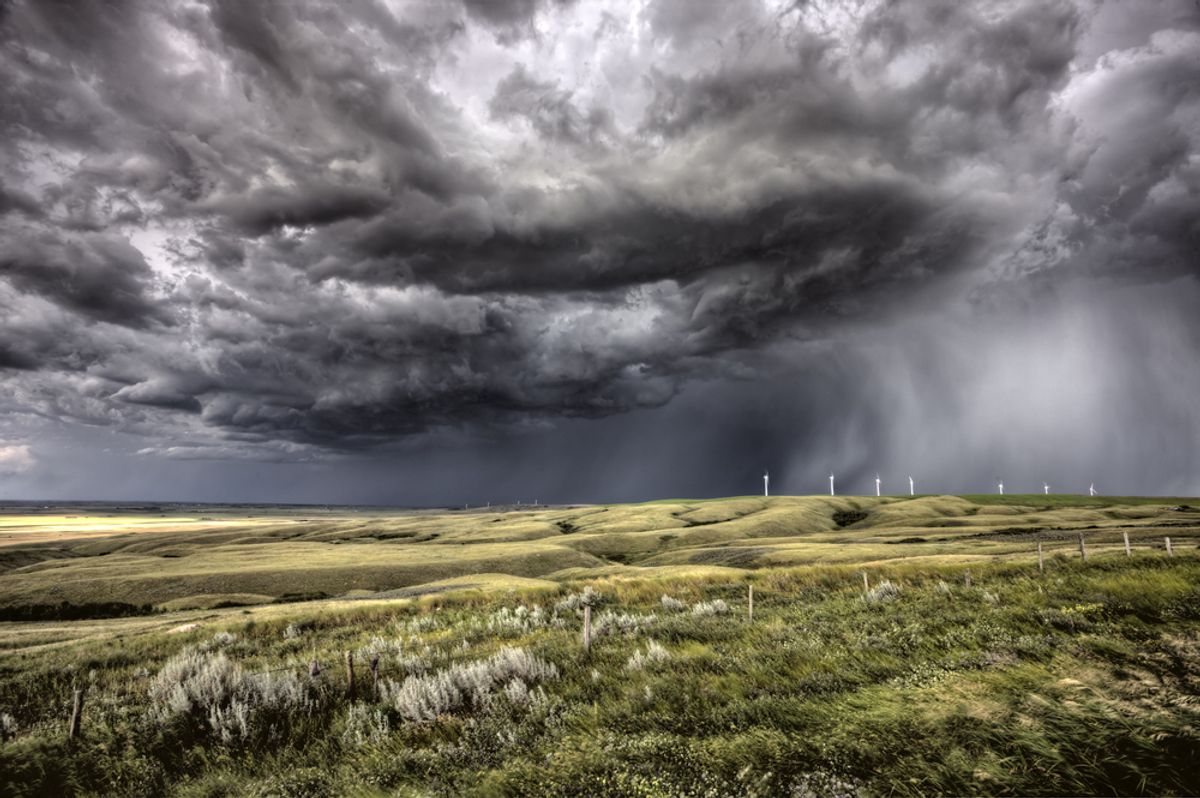Stop me if you've heard this one: The planet is warming. The world's top scientists have established and agreed that the warming is "unequivocal" and, in many cases, "unprecedented," and that humanity's influence on it is "clear." With global greenhouse gas emissions at their highest level in history, the impacts of climate change have already been felt "on all continents and across the oceans"; the more we emit, the more the warming will continue, and the likelier we'll all be to experience "severe, pervasive and irreversible" consequences. Our only chance at changing that narrative is to bring about "substantial and sustained" reductions in emissions. And we need to do it as soon as humanly possible.
The U.N.'s Intergovernmental Panel on Climate Change (re)established as much Sunday in its Synthesis Report, the "greatest hits" document, of sorts, of a yearlong process to assess the current state of climate change: the science, the potential impacts and the best strategies for mitigation.
This latest exercise might feel redundant, were it not for the fact that its message, while beginning to stick, still hasn't entirely sunken in. There is still time to mitigate the worst impacts of climate change, you can practically hear the report's authors shouting, but we have to take drastic action now -- and world leaders must reach a strong, lasting agreement to save the world by December 2015, when they're set to meet in Paris. At the report's launch, U.N. Secretary General Ban Ki-moon summed the situation up even more succinctly: “Science has spoken. There is no ambiguity in the message. Leaders must act. Time is not on our side.”
That should all be enough to convince you this is serious business. If it hasn't, consider that the IPCC is likely understating its case -- some say dramatically. A hard-won consensus negotiated by hundreds of international scientists is almost inherently conservative. And there's reason to believe the group is motivated to play down its findings: one recent study found that it's more interested in avoiding false positives -- thus getting slammed for wrongly predicting a catastrophe that never comes to pass -- than false negatives, in which, out of an abundance of caution, they fail to sound the alarm on something. As Chris Mooney explains in the Washington Post, many of the report's worst-case scenarios are significantly rosier than others have suggested -- and that's not even to mention the findings that came too late to be included, like the fact that the West Antarctic ice sheet appears to have entered a period of unstoppable collapse.
An alarmist report, from a group that does everything possible not to be alarmist? Well, that's downright terrifying. As climate activist Bill McKibben wrote in an editorial for the Guardian, what scientists, who already tend to be conservative, said Sunday "falls just short of announcing that climate change will produce a zombie apocalypse plus random beheadings plus Ebola." Perhaps their finding that this is a problem with solutions -- and affordable solutions, at that -- is a bit overly optimistic as well; science can't, after all, account for the pernicious influence of industry lobbying and Republican science denial.
In any case, the best-case scenario, in which climate mitigation could be both meaningful and cost-effective, would be for greenhouse gas emissions to peak in 2020, and to disappear entirely by the end of this century. Even so, the report warns, some of the impacts of climate change will likely "continue for centuries." Again, this bleak, dangerous future the IPCC says we could avoid through the rapid phaseout of fossil fuels may not even be as bad as the future we're actually headed toward, while a future in which business as usual doesn't result in catastrophe exists only in the imaginations of those who close their eyes to the science. Things can either get bad, or they can get really bad. The one thing that is certain: It'll be infinitely better if we never have to find out which it will end up being.



Shares